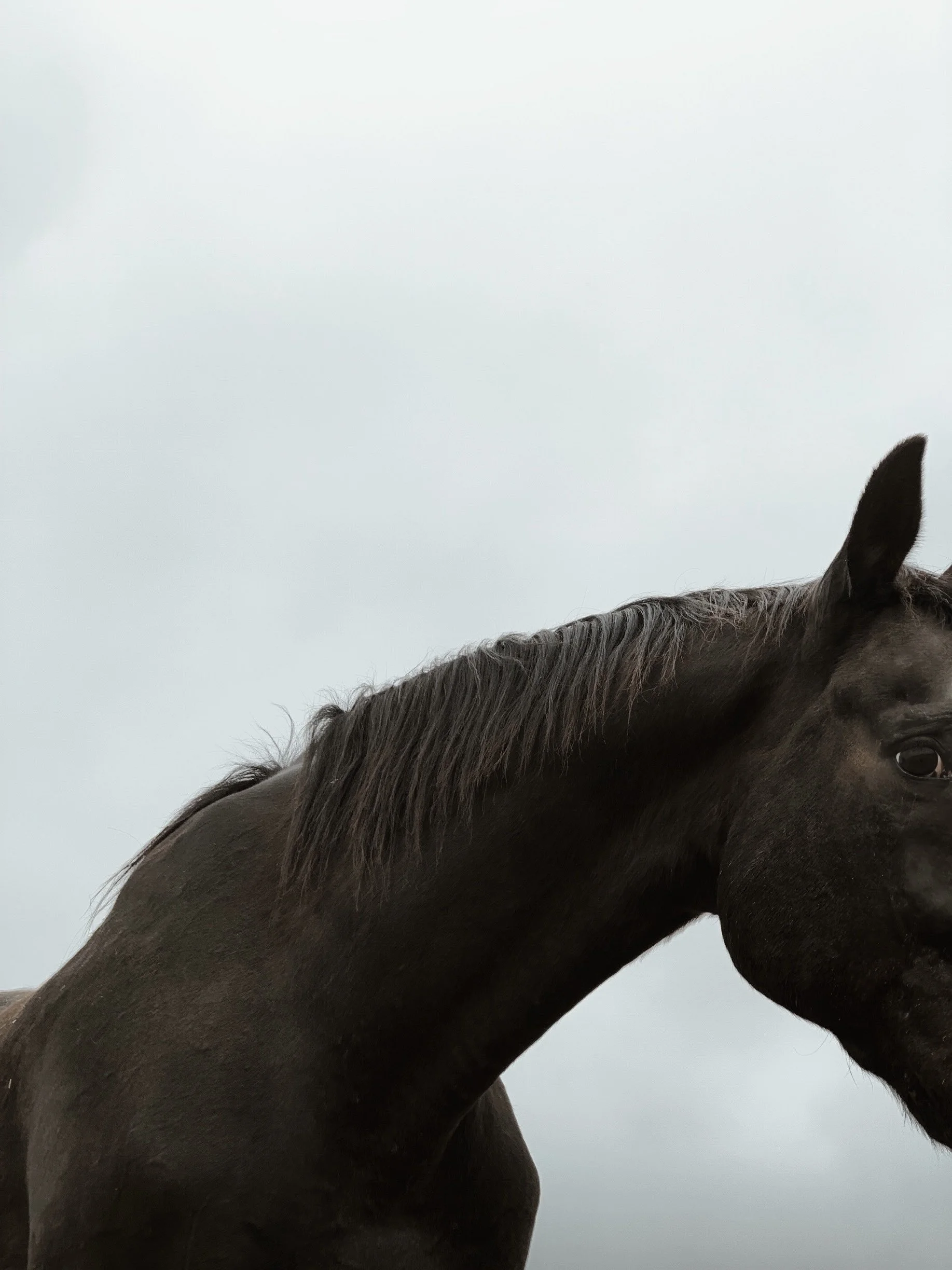
equine therapy
—
horse-guided empowerment + self-discovery
-
Equine therapy invites individuals to connect with the horse, on the ground, as a way to gain insight into the patterns, behaviors, and narratives that show up in relationship with themselves and others.
Underpinning this approach is the belief that having meaningful experiences in nature can be healing and is essential for the human spirit to thrive.
work with the horse to
—
practice self-regulation
set boundaries
engage in decision-making + problem solving
develop a fluid leadership style
advocate for personal needs
build self-esteem + self-efficacy
nurture empathy
access creativity
strengthen intuition
connect with nature
-
An equine-guided session invites individuals to develop a meaningful relationship with the horse on the ground through observation and introspection.
This modality is an insight-oriented, and relational-focused practice that emphasizes the positive and healthy role of emotions, recognizing dysregulation in the body, engaging in self-reflection, and building authentic connection.
Through metaphor and exploring what unfolds with the horse in the moment, individuals gain insight into thoughts, feelings, and behaviors that play a role in their inner and outer world.
-
Horses make excellent partners in this work because they have evolved to be acutely aware of their environment. They are highly perceptive animals with a sensitive and curious nature.
Horses have developed social systems with established roles and meaningful relationships. They are attuned to social dynamics to ensure the safety and the survival of the herd. As a result, horses are especially responsive to shifts in the body language, emotion, energy, and intention of other beings — including humans.
As prey animals with a fundamental drive toward survival, horses are constantly assessing their environment for external threats. We can develop an authentic connection with horses by helping them feel safe in their environment. In doing so, we practice qualities essential to healthy relationships such as self-awareness, boundary-setting, and reciprocity.
This work honors the horse as a sentient being with its own body of wisdom. The horse’s nature is to analyze and respond to a myriad of nonverbal cues. Their organic responses to our behavior and emotional shifts provide direct feedback in the moment and offer insight into what we are bringing to the relationship.
Being aware of the horse’s autonomy is essential for us to develop a meaningful connection. From this view, the horse is experienced as a partner in learning and a guide toward self-discovery.